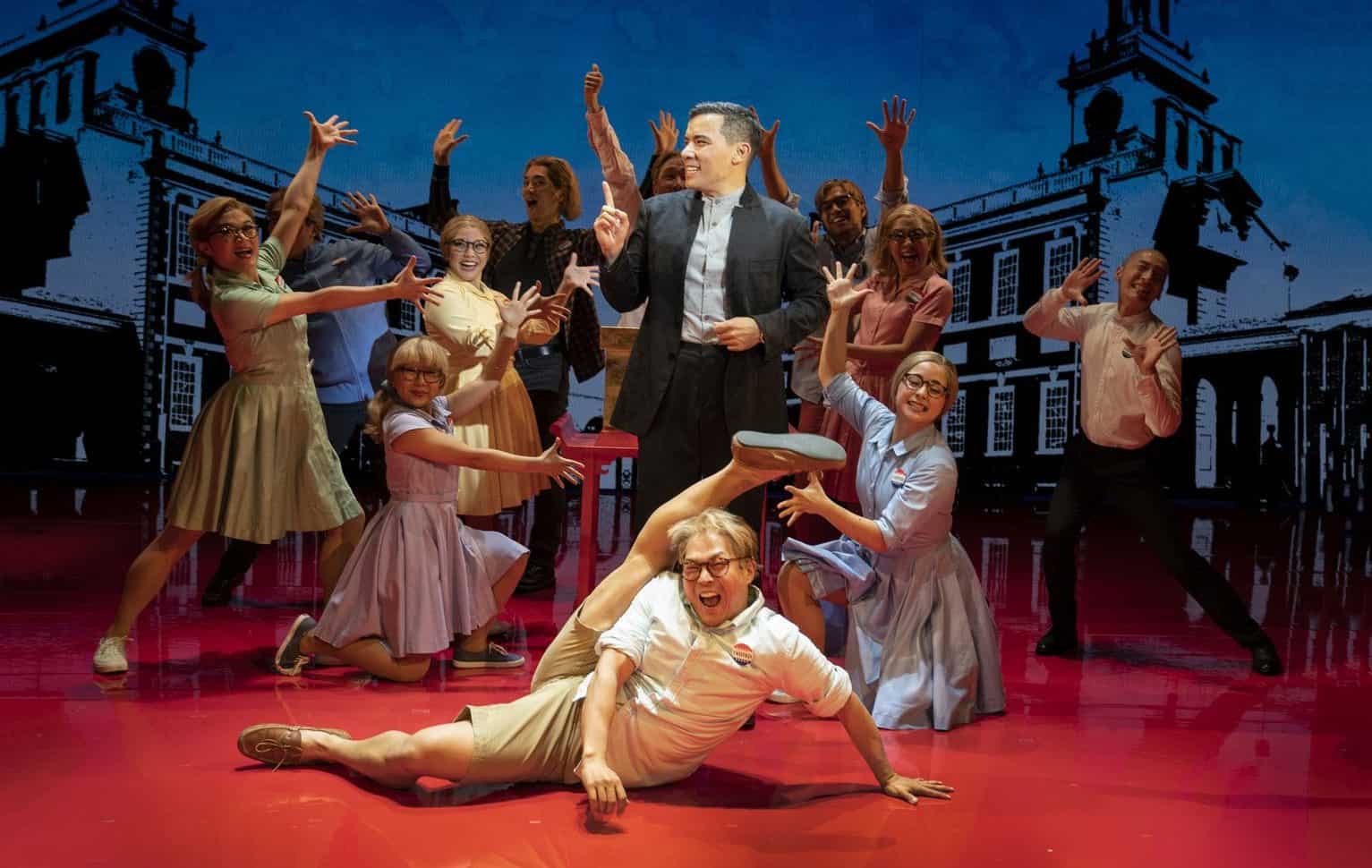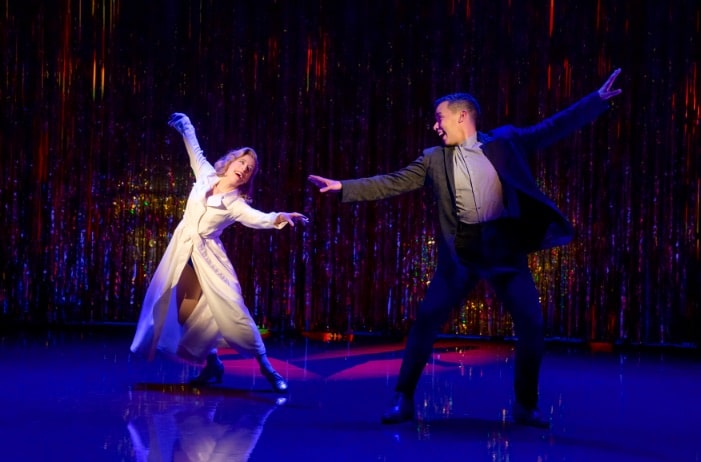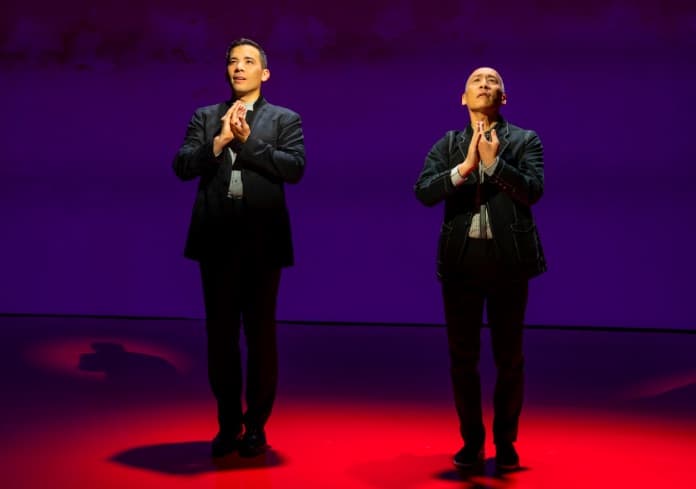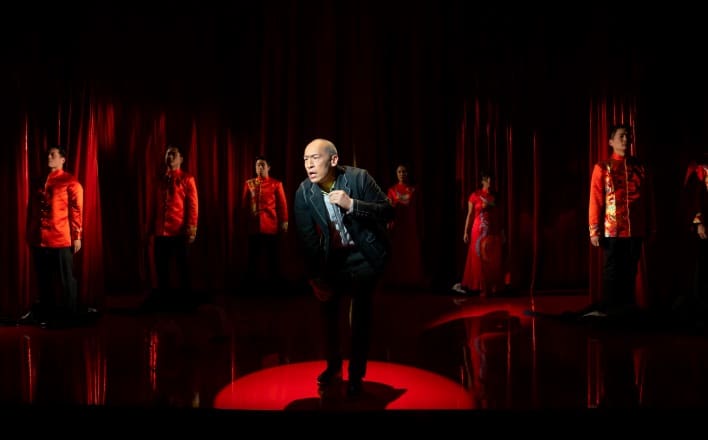Who here is familiar with the Rodgers & Hammerstein’s classic musical The King and I?
You know, the 1951 theatrical classic that compares the East and the West by way of institutionalized cultural imperialism. Beautiful as the music in that show is, decades later we’re urged to take a close look at how culturally and politically flawed it is. David Henry Hwang’s Soft Power aims to turn that on its head while shedding light on and asking questions about hotbed issues at the forefront of today’s society, such as representation, gun violence, and how the democratic system actually works, just to name a few. (Come on, if you were old enough to vote in the 2016 election, don’t try to pretend that you understand the inner workings of the electoral college)
Hwang teamed up with Tony Winning composer and lyricist Jeanine Tesori (Fun Home, Thoroughly Modern Millie, Shrek: The Musical) on this “musical within a play” — which quite frankly is the best way to describe the structure of this show. It differs from your traditional “culture-clash” musical by weaving in and out of traditional show genres. At just over a 2 hour running time, Soft Power is heavy on dialogue, but uses music (the score is fantastic) to support the show in both satirical and sentimental moments, but the piece stands on its own through Hwang’s writing and multi-faceted story.
1.) It goes there. Actually, it goes everywhere. The complicated questions Hwang and Tesori take on are supported by an original, contemporary, complex, but entertaining story. With daring direction from Tony nominee Leigh Silverman, we see the need for out-of-the-box theatre to push boundaries in this political climate. The show starts in Shanghai with Xue Xing, a theatre producer who wants to make a splash in the Broadway theatre scene, but from a strong Chinese perspective. Xing approaches David, (initially portrayed by Conrad Ricamora in Act I, followed by Billy Bustamente in Act II) a first generation Chinese American playwright (it is revealed that his father lived in Shangai before moving to America for college and he never went back) about writing this show and he feels strongly that the current ending — which has a lot to do with the notion of not addressing conflict and two mature adults remaining in an unhappy relationship due to obligation (very different than today’s dating/divorce culture) won’t sit well with American audiences, who Xing is hoping to attract. Ironically at the start of the show, we see Xing (who is married) with what could be considered his girlfriend, Zoe (Alyse Alan Louis) discussing the differences between the two cultures. It is right before the 2016 election and David invites Xing and Zoe to a fundraiser for the (hopeful) new U.S. President, Hilary Clinton. Shortly after the fundraiser, we see David lying on the ground, the victim of a hate-crime stabbing and he blacks out and that’s when the show really begins. We see the vision of musical written by David years in the future, where Xing is essentially the “Anna” role in The King and I to no other than Hilary Clinton (also portrayed by Louis) in the King role, shortly after her tragic 2016 election loss. This show invites audience members to into a post 2016 election White House and teeters on fantasy and a dramatized version of our current reality, pushing every boundary and starring every stereotype straight in the eye.
2.) It’s autobiographical. Well, loosely, but it is rooted in David Henry Hwang’s truth. They say write about what you know, and Hwang absolutely does that. From the fact that the protagonist’s name is David Henry Hwang who is a Chinese American playwright, to casting a nearly fully Asian-American cast — the show’s existence makes a groundbreaking statement on the need for Asian-American representation. It’s also important to mention the hate-crime stabbing in the show is based on a real-life experience Hwang had in Fort Greene, Brooklyn. Soft Power doesn’t just stop there, Hwang and Tesori put a microscope up to the American people and force the audience to examine our current administration, fast-food culture (please direct your attention to the McDonalds set in Act I — scenic design by Clint Ramos and lighting design by Mark Barton) gay rights, Chinese-American relations — the list goes on. But what is clear is that these are all issues close to Hwang’s heart, which makes it all the more powerful.
3.) It’s got all the power. Power that both kills you softly and and packs a punch — the piece is boldly audacious in its attempt to be weird (in the best way possible) and really makes the audience question what the concept of power means. To some, it’s being in an authoritative position. To others, it’s taking control of your own live and finding happiness. In America, is it filling out your ballot on the Tuesday after the first Monday in November? Is it your freedom of speech and to hold hands with who you want to marry? Hwang and Tesori are not afraid to throw everything in the face of the audience and see what sticks. At its essence, isn’t that what theatre is?
Soft Power concluded its run at The Public Theatre on November 17, 2019. This production was a co-commission and co-production with the Center Theatre Group following a successful run in San Francisco after its world premiere in Los Angeles in 2018. For more information please visit https://publictheater.org/softpower
Hopefully this isn’t the last we see of this powerful production.



